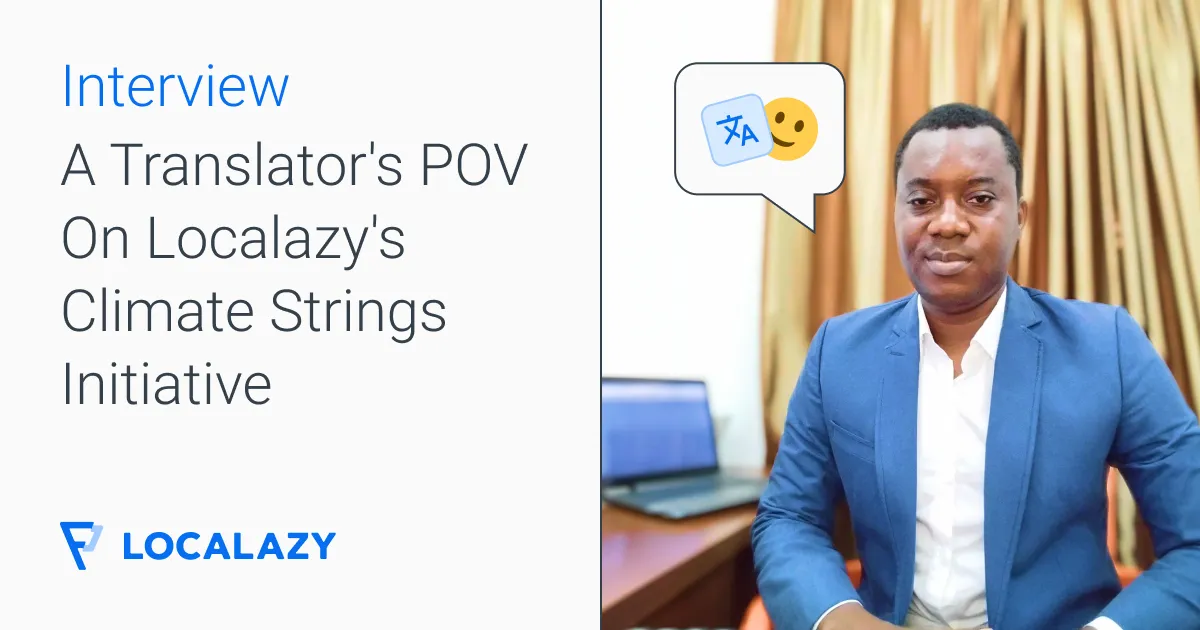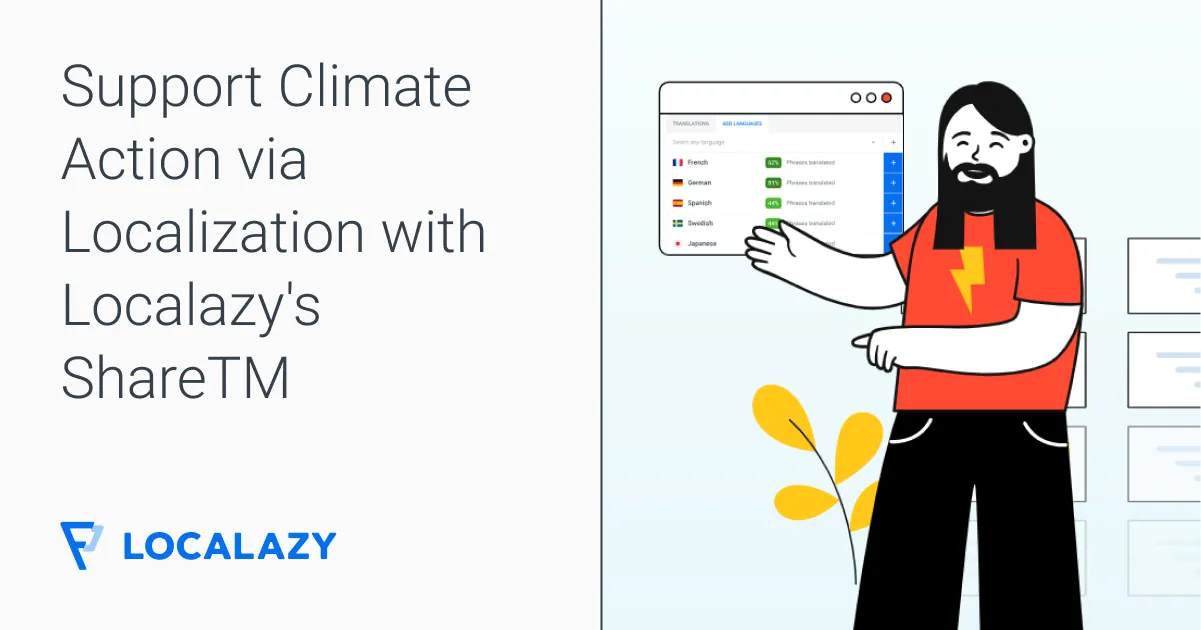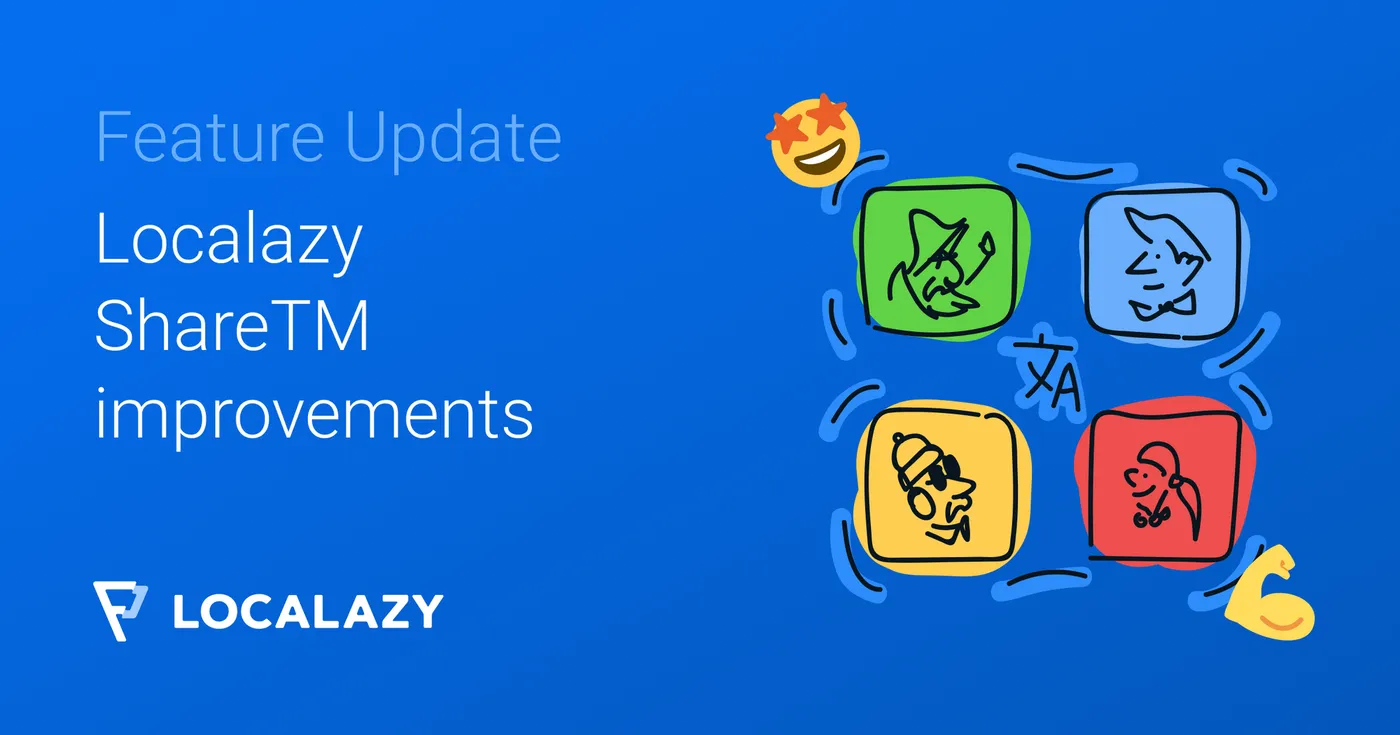Back in 2020, when Localazy was still a little seedling 🌱 with a lot of underdeveloped potential, our team started to recruit professional translators to strengthen our core product. In fact, five out of our first 20-30 users were linguists themselves. At that time, the majority of apps translated with Localazy's help had been localized using ShareTM, one of our greatest time-saving assets during localization processes (and a source of knowledge across industries and languages).
Even now, with hundreds of users in 113 countries worldwide, our shared translation memory still plays a big part in global projects like our Shared Climate Strings Initiative 👩💻🐝, which aims to act as an open-sourced repository of climate-related translated strings in more than 90 languages.
One of our first translators back in 2020, Anderson Jes, has seen the system evolve over the years and understands its potential to promote key community causes. A native Cameroonian, Jes is proficient in several African languages like Igbo, Hausa, Yoruba, Douala, and Kiswahili, as well as widely spoken global languages like French, English, and Spanish. No one like him to describe the challenges of populating a translation memory with African languages and dialects and to discuss how democratizing access to climate information can help millions of people worldwide.
Learn more about our climate-related efforts here! 👉 Support Climate Action via Localization with Localazy's Shared Translation Memory 🌍
⌨️ The translator's life 🔗
Hi, Anderson! Pleasure to have you here. Can you introduce yourself and tell us a little about your background and education?
Hi! 👋 My name is Anderson. I'm a translator. Specifically, I hold a Bachelor’s Degree in Foreign Language and Translation Studies, with an emphasis on French and Spanish, and have undertaken further programs in Strategy, Precision Medicine, and Machine Learning.
You speak eight different languages. That's incredibly impressive. What was the spark that ignited your interest in linguistics?
What an amazing question. My interest in linguistics was ignited by my desire to understand people in their most authentic form. I believe that language is a profound way of connecting with culture; it opens a window into the nuances and subtleties that make each culture unique. I didn't want to rely on translations, which can sometimes lose those nuances. I wanted to experience works of literature, art, and even day-to-day conversations in their original languages.
In my travels to various African villages, I fell in love with the rich tapestry of dialects, each reflecting its own history, ethos, and worldview. ❤️ I discovered that every dialect has a unique story to tell, and by learning them, I felt I was preserving and appreciating an important part of our human heritage.
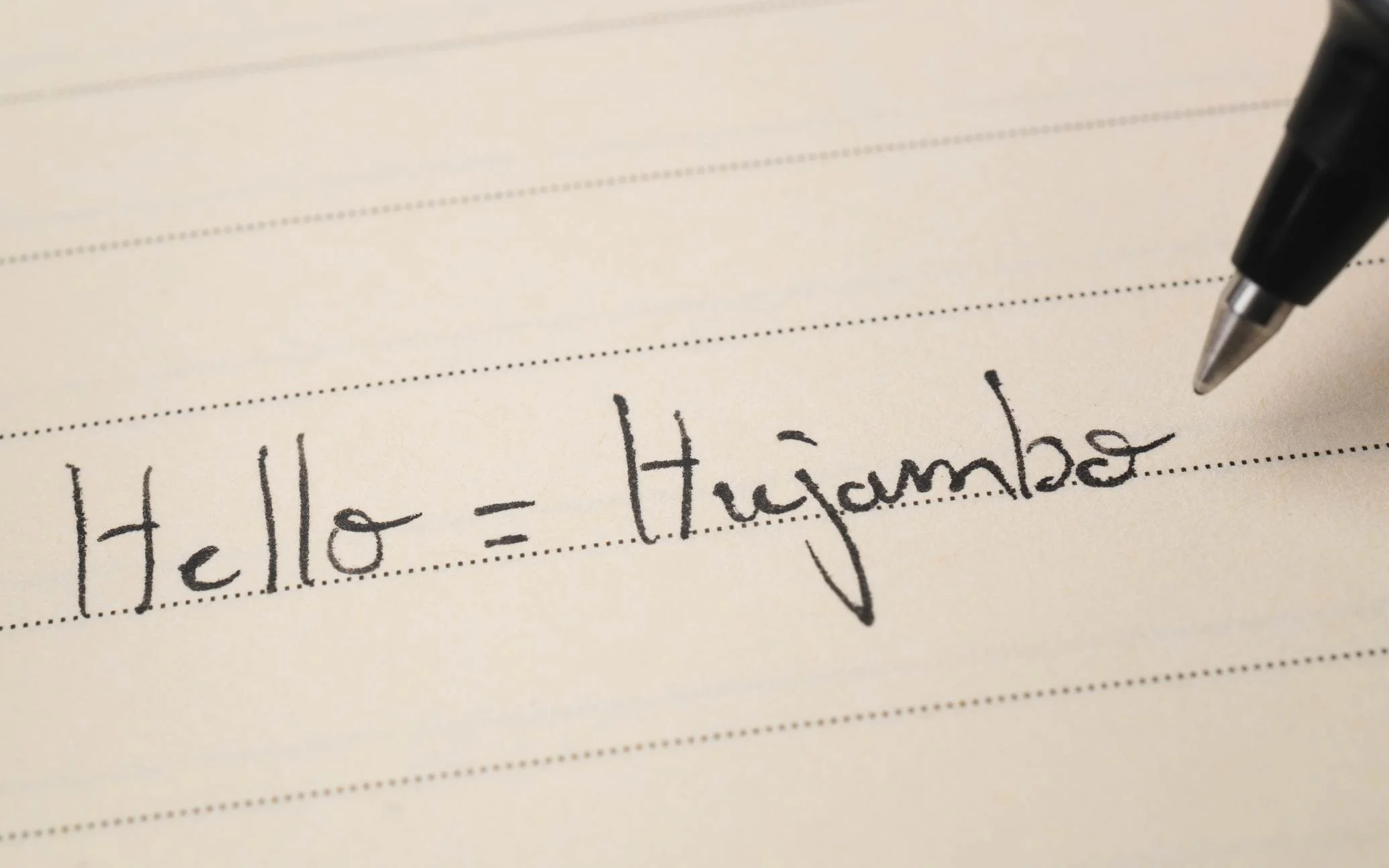
I remember reading Chinua Achebe, who wrote in English but infused it with Igbo proverbs and idioms. He once said:
"Those who tell you 'Do not put too much politics into your art' are not being honest. If you look very carefully, you will see that they are the same people who are quite happy with the situation as it is... What they are saying is 'Don't upset the system'."
This resonated with me because learning languages is, in its own way, a political act. It's a way of saying that every culture and every language matter. It's a way of upsetting a system that favors certain languages over others.
Where are you from, and what does language diversity look like over there?
I was born in 🇨🇲 Cameroon, a country known for its remarkable linguistic diversity - it is often called "Africa in miniature" and home to over 200 distinct languages. I lived there during my first 13 years. This early exposure to linguistic diversity had a significant impact on my fascination and appreciation for languages.
From Cameroon, I moved to 🇳🇬 Nigeria, another linguistically rich country boasting over 520 languages spoken across its states. What's remarkable about Nigeria's language landscape is the multitude of ethnic communities, each with its own unique language, yet co-existing and interacting with one another. The major languages - Hausa, Yoruba, and Igbo - are predominantly used in the Northern, Western, and Eastern parts of the country, respectively, while English, the official language, is widely spoken across the country, serving as a bridge for inter-ethnic communication.
"Living and travelling in Cameroon and Nigeria has deeply shaped my appreciation for the critical role language plays in shaping cultural identity, social interacions and historical narratives"
Yet beyond these major languages, each state boasts a variety of local languages and dialects, each with its own unique cultural and historical significance. Multilingualism is not uncommon in many communities, with people seamlessly switching between languages, which I think is a testament to the country's linguistic adaptability and resilience.
Both Cameroon and Nigeria represent a microcosm of Africa's rich and diverse language ecosystem. 🗣️ Living and traveling in these countries has deeply shaped my understanding and appreciation for the critical role language plays in shaping cultural identity, social interactions, and historical narratives.
You’re one of Localazy’s first contributors! 👏 How did you get involved with us?
I first became involved with Localazy due to my fascination with languages and my strong belief in the power of communication to connect diverse people and cultures. When I learned about Localazy's mission to make apps and software accessible in many different languages 📲 💬, I immediately recognized the potential impact it could have. It resonated with my experience as a polyglot and my understanding of the rich African language ecosystem.
"When I learned about Localazy's mission to make apps and software accessible in many different languages, I immediately recognized the potential impact it could have"
My initial involvement began when I offered to contribute translations in the various languages I'm proficient in. I saw it as an opportunity to leverage my language skills to help software developers reach a more diverse audience and promote language inclusivity in the digital space.
What did you like the most about our platform?
What I liked most about Localazy was its commitment to breaking down language barriers. The platform's focus on enabling localization for developers, regardless of their budget or the languages they initially targeted, showed a commendable commitment to inclusivity and accessibility.
Furthermore, Localazy's collaborative approach appealed to me as well. The platform fosters a community of contributors who can review each other's work. This ensures a high standard of translation and localization ✅, contributing to a more accurate and culturally sensitive product. It was exciting to be part of this global effort, and I learned a great deal from the experiences and insights shared by other language enthusiasts on the platform.
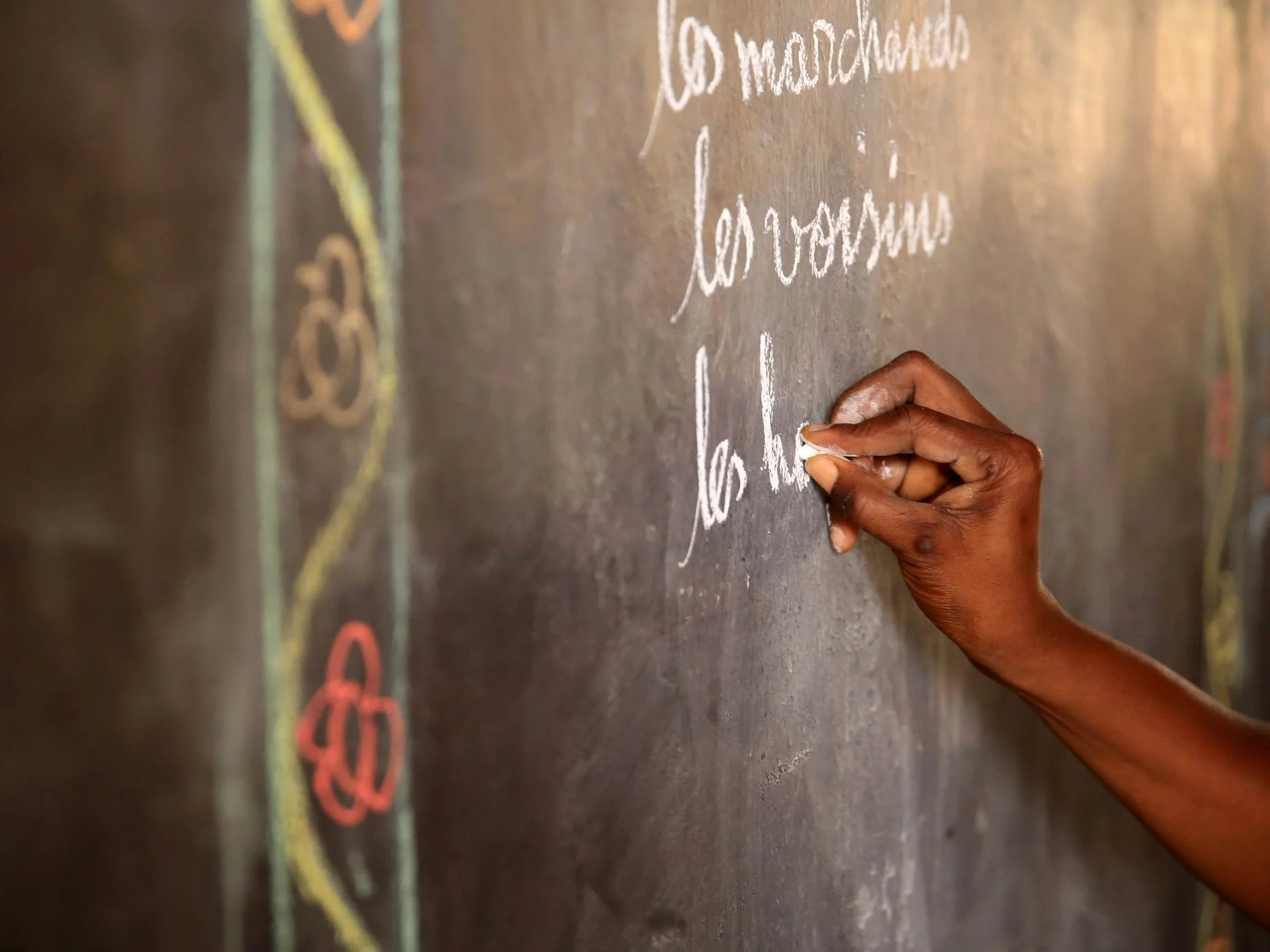
🌍 Africa & language barriers 🔗
Let's go back to the African language ecosystem. For those who are unfamiliar with it, how would you describe it?
To begin, the African language ecosystem is incredibly diverse and complex. With an estimated 2,000 to 3,000 languages, the continent is home to a wealth of linguistic diversity, showcasing the richness of African cultures, histories, and philosophies. One unique aspect of the African language ecosystem is its fluidity and adaptability. 🌊 For instance, in many African societies, multilingualism is the norm rather than the exception. Languages influence each other, borrow words and phrases, and adapt to the changing societal and cultural dynamics.
"In many African societies, multilingualism is the norm rather than the exception. Languages influence each other and adapt to the changing societal and cultural dynamics"
Another notable aspect is the sociolinguistic factor. Languages in Africa often signify more than mere communication tools—they are markers of ethnic identity, social status, and cultural affiliation. For instance, the languages I speak, such as Igbo, Hausa, and Yoruba, each represent distinct ethnic groups and cultures within Nigeria.
However, there's also a pragmatic aspect. Global languages like 🇬🇧 English, 🇫🇷 French, and 🇪🇸 Spanish have an important role in Africa due to historical ties and globalization. They often serve as lingua francas, bridging communication gaps between different ethnic groups and facilitating international communication. While I am well-versed in several languages, I'm always mindful that my understanding represents just a portion of Africa's vast linguistic landscape. Every language, every dialect, has a story to tell and contributes to the intricate mosaic that is the African language ecosystem.
In your experience, do language barriers hinder developments in your area or in certain industries, like the startup environment?
Absolutely. Language barriers can significantly affect developments in various sectors. In the startup world, clear and effective communication is critical. Startups often need to pitch their ideas to potential investors, attract customers and build partnerships. When there is a language barrier, conveying the uniqueness and value of their products or services can become challenging. Moreover, if a startup's product is technology-based, like an app or a platform, it's important that the interface and user guides are easily understood by users. If not properly localized, it can limit user adoption, especially in markets where English or other widely spoken languages are not the primary language.
"If a product is not properly localized, it can limit user adoption, especially in markets where English or other widely spoken languages are not the primary language"
In the broader context of my region, language barriers can hinder social and economic development as well. For instance, in education, if teaching materials 📚are not available in local languages, it can limit the reach and effectiveness of educational programs, contributing to lower literacy and educational attainment. Similarly, in healthcare, important health information and services 🏥 might not reach everyone if they're not provided in the languages spoken by different communities.
What about job opportunities? How do language barriers affect the scouting of African talent?
Language barriers do have an impact on job opportunities for African talent. With international companies, if the corporate language is not one an individual is proficient in, it can limit their opportunities. For intra-African mobility, the vast linguistic diversity can pose challenges when professionals seek to work in different countries within Africa, where they may not be familiar with the local or official languages. Even within one's own country, job prospects can be influenced by a person's proficiency in different local languages. However, on the flip side, being multilingual can be a significant advantage, providing a competitive edge in a globalized job market.
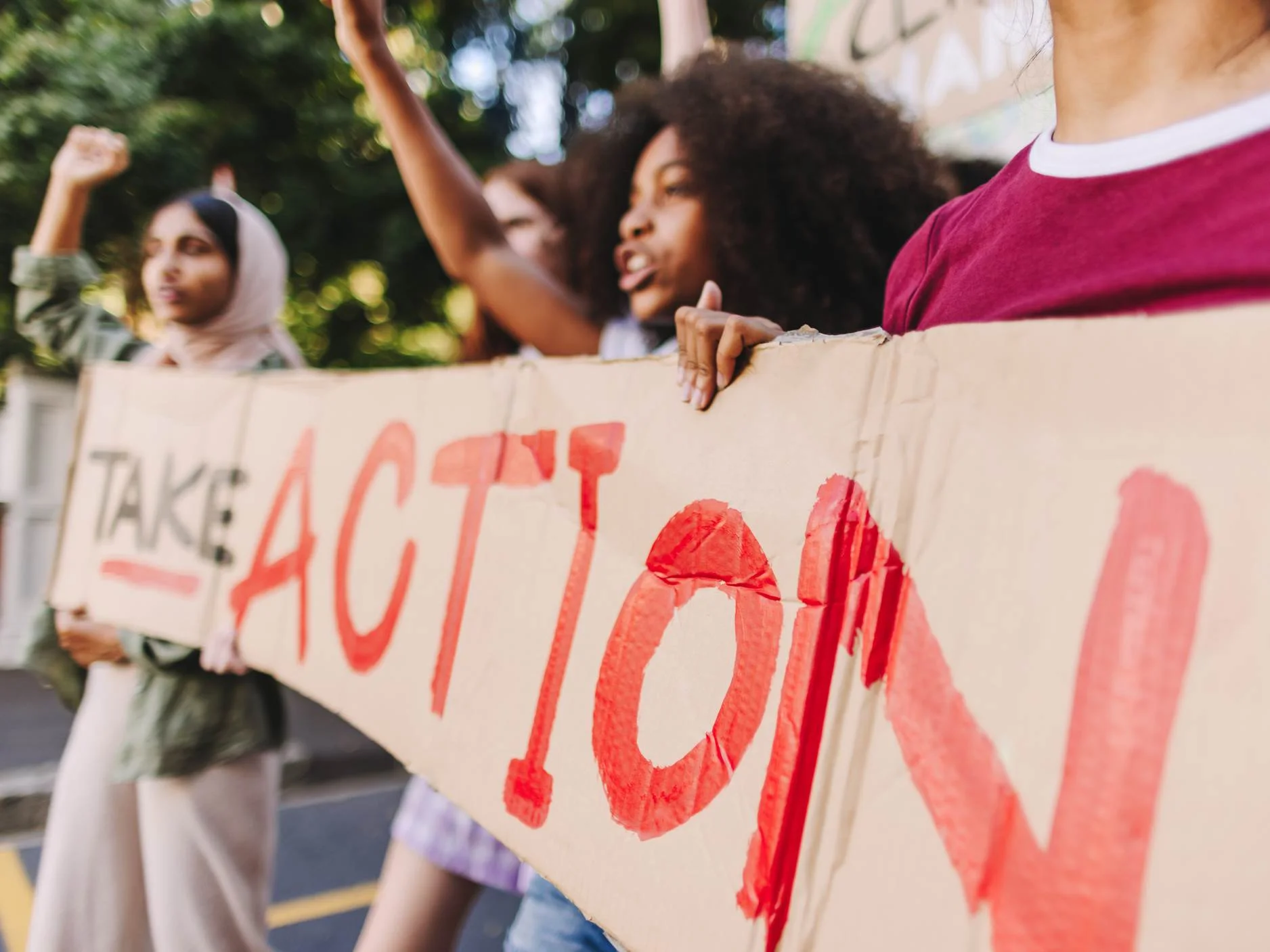
🧊 Localization for the climate emergency 🔗
Localazy is developing a Shared Climate Strings project to facilitate these relationships. How do you think it can help?
The Shared Climate Strings project by Localazy is a powerful initiative that will enhance communication, promote collaboration, empower local communities, and foster inclusivity in the fight against climate change. By facilitating the translation of climate-related information into various languages, it ensures wider accessibility and understanding of these critical issues. This initiative is instrumental in promoting a coordinated, inclusive, and effective global response to climate change. 💪
Why do you think it is important to start off with a climate-related lexicon?
It is vital. It aids in raising global awareness about climate change, promoting informed action, ensuring inclusive dialogue, empowering affected communities, and facilitating international collaboration. By translating key terms into multiple languages, we can democratize access to climate information, enhancing understanding and resilience worldwide.
We started building the repository with some of the main European languages (English, Spanish, French, German), but incorporating African dialects has proven much more challenging. Why is this so?
Incorporating African dialects into a language repository can indeed be challenging due to several factors:
- Linguistic diversity. Africa's vast linguistic diversity can make the task of cataloging and translating these languages formidable. Consider Nigeria, a country with over 520 distinct languages. Creating a language repository that includes all these languages, each with its unique vocabulary, grammar, and syntax, would be a massive undertaking.
- Oral tradition. Many African languages have a predominantly oral tradition, with less developed written forms or standardized orthography. This can complicate their incorporation into a digital platform. Languages such as Fulfulde, spoken by the Fulani people across several African countries, have a strong oral tradition, with many dialects having limited written forms.
"Many African languages have a predominantly oral tradition, with less developed written forms. Often, there is also a scarcity of comprehensive learning resources, which can make localization efforts more challening"
- Lack of resources. There is often a scarcity of comprehensive dictionaries, learning resources, or databases for many African languages, particularly those spoken by smaller communities. A language like Kanuri, spoken in parts of Nigeria, Niger, Chad, and Cameroon, might have very few comprehensive dictionaries or language learning resources available, making it challenging to gather accurate and extensive lexical data for the repository.
- Variation within languages. Even within a single African language, there can be considerable variation across different regions or communities. A Swahili speaker from Kenya might use a different vocabulary or syntax than a Swahili speaker from Tanzania, complicating the translation and localization process.
- Limited number of translators. For less widely spoken languages, such as Tiv (spoken by the Tiv people in Nigeria and Cameroon), finding professional translators who are proficient and can accurately translate into these languages might be a difficult task.
Despite these challenges, the effort to incorporate African dialects into such repositories is crucial for promoting language diversity and inclusivity.
🤝 Working with Localazy's community features 🔗
Have you ever participated in one of our community-driven translation projects? Would you describe it as easy-to-use?
Yes, I have participated in several community-driven translation projects, including ones associated with the United Nations and the Millennium Development Goals (MDGs), and others focusing on Family and Community Life Reorientation. These experiences have greatly enriched my understanding of the impact of language translation and localization in driving community development and global cooperation.
Working with Localazy, however, was a unique experience. The platform's user-friendly interface made the translation process smooth and intuitive. The way it provides context for each string to be translated and supports translators with helpful tools such as a glossary and memory translation tools greatly aids in ensuring accurate and nuanced translations.
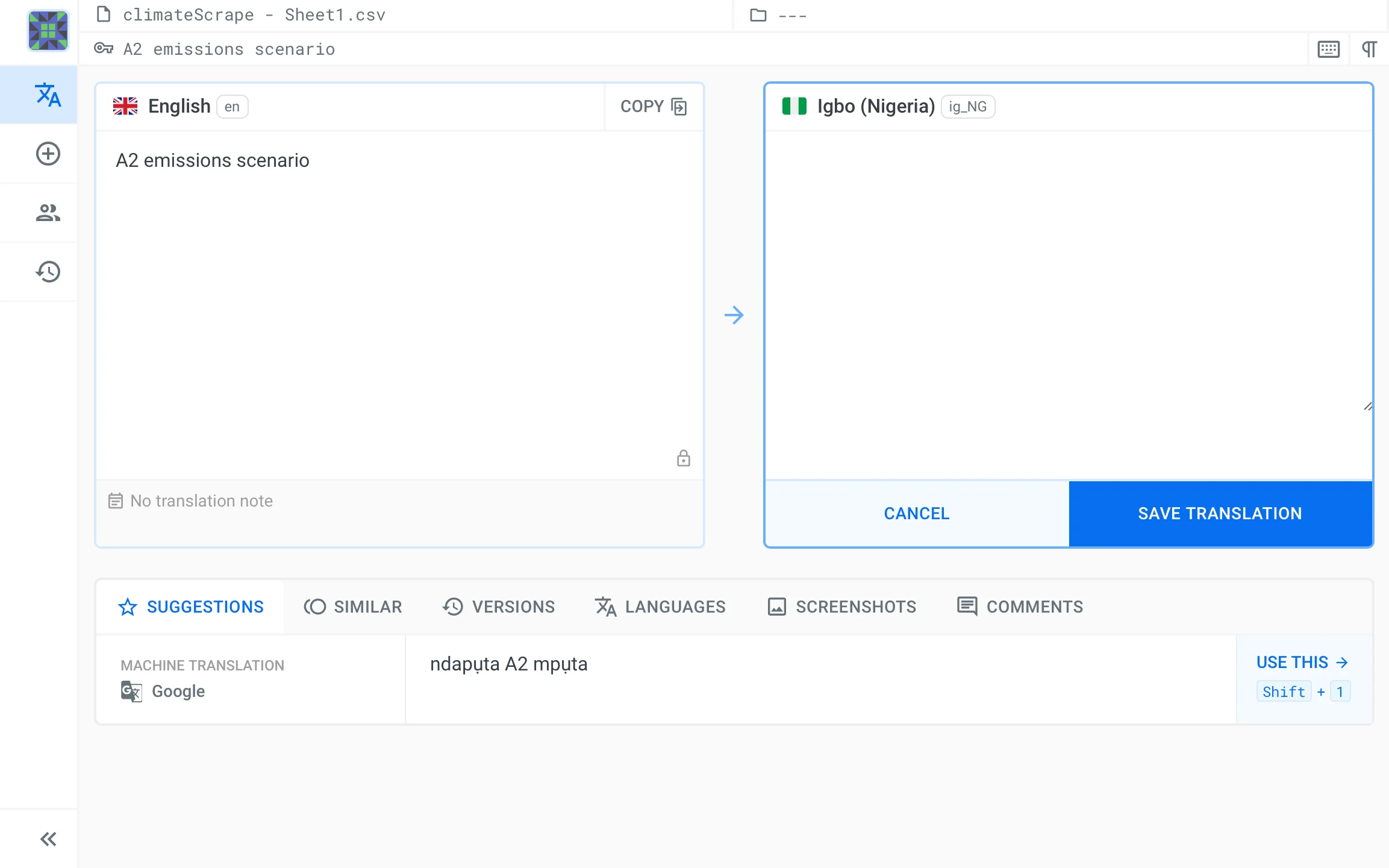
I've found that each project has its unique aspects and challenges, but overall, community-driven translation initiatives like these are instrumental in promoting language diversity, inclusivity, and global collaboration. I'm glad to contribute my language skills to such valuable causes.
As a translator, what are your favorite Localazy features?
I really enjoy four specific features:
- ↔️ In-Context Localization: it is excellent. It provides crucial context for the strings being translated, which helps me deliver more accurate and nuanced translations. It allows me to understand how and where a particular string is used, ensuring the translated content makes sense in the application.
- 🧠 Translation Memory: I really appreciate it. It saves previously translated phrases, which not only increases my productivity but also ensures consistency in translations. This feature becomes especially valuable when working on large projects with recurring terminology.
- 📓 Glossary: it is a wonderful aid, especially when dealing with specialized or technical terms. It ensures that specific terms are translated consistently throughout the project.
- 🔍 Review process: it adds an extra layer of quality control by letting other community members review the translations, fostering collaborative improvement. It's really well thought out!
Are you planning on contributing to this project?
I'm definitely contributing! 😀 The mission aligns well with my passion for languages and the important global issue of climate change. By participating, I can leverage my language skills to make a tangible impact.
Join Anderson and help us populate our Climate Shared Translation Memory!
Any tips for those who are interested in trying it out?
For those interested in contributing, I'd suggest first familiarizing yourself with the platform and spending some time getting to know Localazy's features (glossary, translation memory, in-context localization, etc.). When translating, always consider the context in which the strings are used and maintain consistency across the project using the appropriate recurring phrases or terminology.
Don't hesitate to ask for help or feedback from the community, and don't forget to enjoy the process either! It's a wonderful opportunity to use your language skills for a good cause and learn something new. Remember: every contribution, no matter how small, can make a big difference.
Anything else you’d like to add?
I'd just like to emphasize the importance of projects like these, which not only promote language diversity and inclusivity but also address crucial global issues like climate change. Kudos to Localazy for making it possible! It's truly inspiring to be part of such a global, collaborative effort. For anyone considering getting involved, I'd say go for it! It's an experience that enriches you personally and contributes positively to the world. 🫶
Kwa kumalizia, napenda kusema: 'Tunaweza kubadilisha dunia kwa lugha zetu. Tuchangie kwa pamoja katika jitihada hizi.' In English, that means: 'We can change the world with our languages. Let's contribute together to these efforts.'
Our Shared Climate String projects is already available here. Explore it and contribute for a chance of entering our leaderboard for a good cause!
